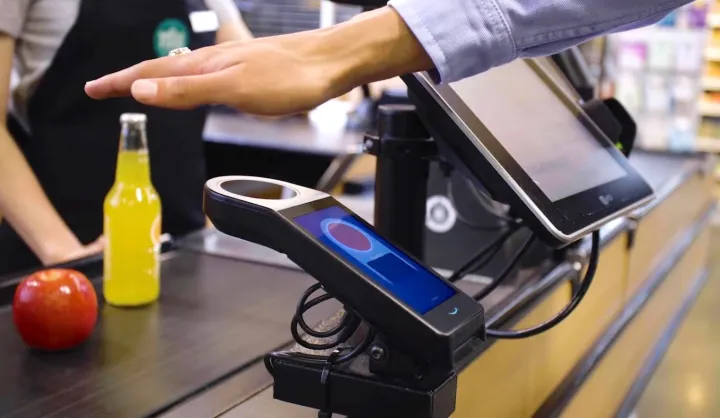
Amazon is expanding its Amazon One palm-recognition payment system to all 500 of its Whole Foods Market stores in the U.S., with the rollout to be completed by the end of this year.
It means that, once signed up, shoppers at the store will no longer have to mess about with their phone or card at the checkout, instead simply waving their palms over the reader to pay for their items. Savings will automatically be applied to goods for Prime members who link their Amazon One profile with their Amazon account.
Amazon launched its pay-with-palm feature in 2020 and currently offers it in around 200 stores across the U.S., so this latest expansion is a significant one.
Newbies to the system can enroll online with their credit or debit card, Amazon account, and mobile number. Setup is then completed in-store by scanning a palm over an Amazon One device on the next visit to a participating Whole Foods Market store. The system reads a person’s palm and underlying vein structure to create a unique numerical, vector representation, called a “palm signature,” for identity matching.
Alternatively, the entire enrollment process can be carried out in the store at an Amazon One device using a credit card and phone number.
“We are always looking for new ways to delight our customers and improve the shopping experience,” Leandro Balbinot, chief technology officer at Whole Foods Market, said in a post on Amazon’s website. “Since we’ve introduced Amazon One at Whole Foods Market stores over the past two years, we’ve seen that customers love the convenience it provides, and we’re excited to bring Amazon One to all of our customers across the U.S.”
The system is certainly a convenient way to pay, though some privacy advocates have raised concerns about Amazon collecting and storing biometric data linked to U.S. citizens. On its website, Amazon says it will not share palm data with third parties unless it’s required to comply with a legally valid and binding order.
Editors' Recommendations
- Amazon’s $2-an-hour bonus pay for frontline workers will end in June
- Amazon launches its first cashier-free grocery store in Seattle
- Watch Amazon’s all-new delivery drone zipping through the sky


